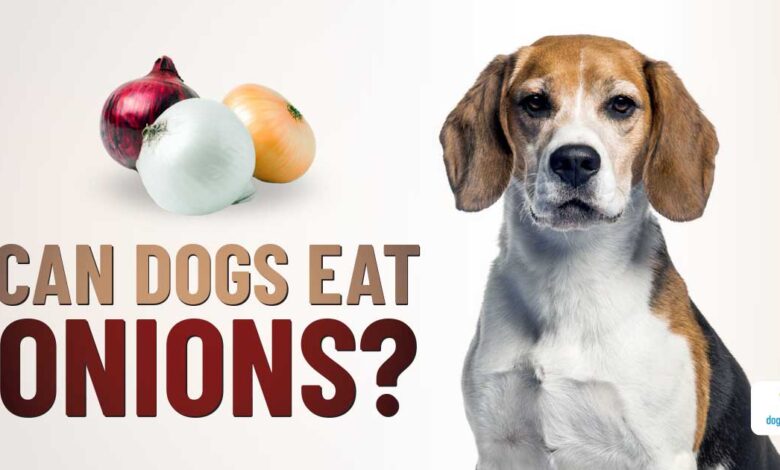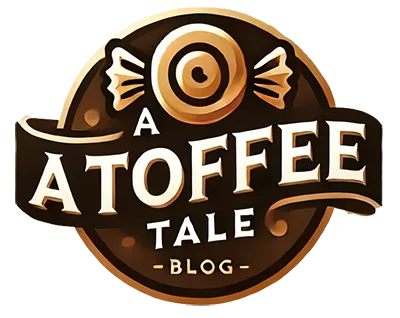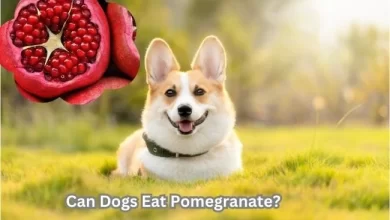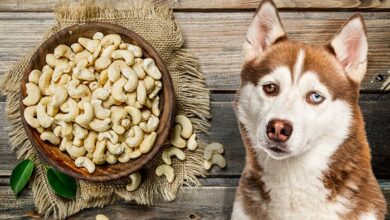Can Dogs Eat Onions Raw or Cooked? Important Safety Information-2024

Hey there! Let’s talk about why onions are toxic to dogs. The main problem is a compound called thiosulfate. While onions are perfectly safe for us, this compound can be really harmful to our furry friends.
So, what’s the deal with thiosulfate? It’s harmless to humans because we can break it down easily. But dogs can’t process it the same way. When they eat onions, thiosulfate starts attacking their red blood cells.
This leads to a condition called hemolytic anemia. Basically, the red blood cells break down faster than they can be replaced. This affects the blood’s ability to carry oxygen, making your dog feel weak and tired. That’s why it’s super important to keep onions out of your dog’s diet to keep them safe and healthy!So let’s explore that- can dogs eat onions?
Raw Onions vs. Cooked Onions: Is There a Difference?
Comparison of Toxicity Levels Between Raw and Cooked
When it comes to onion toxicity in dogs, you might wonder if raw onions are more dangerous than cooked ones. The truth is, both raw and cooked onions are toxic to dogs, but the toxicity levels can differ slightly.
- Raw : Contain the highest concentration of thiosulfate, making them extremely toxic to dogs.
- Cooked : Still contain thiosulfate, though cooking might slightly reduce the concentration. However, they remain dangerous and can cause serious health issues.
How Cooking Affects the Concentration of Thiosulfate
Cooking onions can alter their chemical composition, but it doesn’t eliminate the harmful effects. Thiosulfate, the toxic compound in onions, remains present even after cooking, albeit in slightly reduced amounts.
- Thiosulfate in Raw Onions: Highest concentration, posing a severe risk.
- Thiosulfate in Cooked Onions: Slightly reduced concentration but still toxic.
Risks Associated with Both Forms of Onions for Dogs
Whether raw or cooked, onions pose significant risks to dogs due to the presence of thiosulfate. This compound causes oxidative damage to red blood cells, leading to hemolytic anemia.
- Raw Onions: High risk due to concentrated thiosulfate.
- Cooked Onions: Still dangerous despite reduced thiosulfate levels.
Regardless of the form, onion ingestion can result in severe symptoms and health complications for dogs, including vomiting, diarrhea, lethargy, and in severe cases, collapse and death. It’s crucial to keep all forms of onions out of your dog’s reach and educate those around you about the dangers.
By understanding the risks associated with both raw and cooked onions, you can better protect your dog from potential poisoning and ensure their health and safety. Always be vigilant and cautious about what your dog consumes!
Potential Risks of Eating Onions for Dogs
Immediate Symptoms
Hey everyone! If your dog consumes onions, you might notice some immediate symptoms that indicate something is wrong. These can appear quickly after ingestion and are your first warning signs.
- Vomiting: Your dog might throw up.
- Diarrhea: Loose stools are common.
- Abdominal Pain: Your dog may show signs of stomach discomfort, such as whining or guarding their abdomen.
Signs of Hemolytic Anemia
As onion toxicity progresses, it can lead to hemolytic anemia, a serious condition where red blood cells are destroyed faster than they can be replaced. Here are some critical signs to watch for:
- Pale Gums: Your dog’s gums may appear lighter than usual due to a lack of healthy red blood cells.
- Rapid Heart Rate: Your dog’s heart may beat faster to compensate for the reduced oxygen-carrying capacity of their blood.
- Weakness: Your dog might seem unusually tired and weak, struggling with normal activities.
Long-Term Health Effects if Onions Are Consumed Regularly or in Large Quantities
If your dog consumes onions regularly or in large quantities, the long-term health effects can be severe and potentially life-threatening.
- Chronic Hemolytic Anemia: Ongoing destruction of red blood cells weakens the dog’s overall health over time.
- Weakened Immune System: The continuous strain on the body can compromise your dog’s immune system, making them more susceptible to infections and other illnesses.
- Organ Damage: Prolonged anemia and reduced oxygen supply can lead to damage to vital organs, including the heart and kidneys.
- Life-Threatening Conditions: In severe cases, chronic onion toxicity can be fatal if not treated promptly and effectively.
Understanding these potential risks emphasizes the importance of keeping onions and onion-containing foods out of your dog’s reach. Always monitor for any symptoms if you suspect your dog has ingested onions and seek veterinary care immediately to ensure their health and well-being.
Can Dogs Eat Onion Powder or Processed Onion Products?
Dangers of Onion Powder and Its Concentrated Thiosulfate Content
Hey everyone! When it comes to onion toxicity in dogs, onion powder is particularly dangerous. The reason is that onion powder contains a concentrated amount of thiosulfate, the toxic compound that causes oxidative damage to red blood cells.
- Concentrated Thiosulfate: Onion powder has a high concentration of thiosulfate, making it extremely toxic even in small amounts.
- Increased Risk: Because it’s more concentrated, a smaller amount of onion powder can cause significant harm compared to raw or cooked onions.
Risks Associated with Processed Foods Containing Hidden Onions
Processed foods often contain hidden onions, making it crucial to be vigilant about what your dog consumes. These foods can be just as dangerous as fresh onions due to the presence of onion powder or dehydrated onions.
- Hidden Dangers: Many processed foods contain onion powder or dehydrated onions, which can be toxic to dogs.
- Common Processed Foods: Foods like soups, sauces, gravies, and seasonings often have hidden onion ingredients.
Common Sources of Onion Powder in Commercial Pet Foods and Human Snacks
It’s important to be aware of the potential sources of onion powder in both commercial pet foods and human snacks.
- Pet Foods: While most reputable pet food brands avoid using onions, always check the ingredient list for any form of onion or onion powder.
- Human Snacks: Common snacks like flavored chips, pretzels, and certain meat products can contain onion powder.
Here are some common sources to watch out for:
- Seasoned Meats: Processed meats like sausages or deli meats often contain onion powder for flavor.
- Snack Foods: Chips, crackers, and other savory snacks may include onion powder.
- Soups and Sauces: Many canned or packaged soups and sauces use onion powder as a flavor enhancer.
Understanding the dangers of onion powder and being vigilant about processed foods can help you keep your dog safe. Always read ingredient labels carefully and avoid sharing human foods that may contain hidden onions with your furry friend. If in doubt, it’s best to stick to dog-specific treats and foods to ensure their health and safety!
Safe Alternatives to Onions for Dogs
List of Safe Vegetables and Fruits for Dogs
Hey everyone! If you’re looking for safe and healthy alternatives to onions for your dog, here are some great vegetables and fruits that your furry friend can enjoy:
- Carrots: Crunchy and sweet.
- Green Beans: Fresh and crunchy.
- Bell Peppers: Crisp and colorful.
- Sweet Potatoes: Soft and nutritious.
- Pumpkin: Excellent for digestion.
- Apples (without seeds): Crisp and juicy.
- Blueberries: Small and antioxidant-rich.
- Peas: Small and tasty.
- Cucumbers: Hydrating and crunchy.
- Zucchini: Light and nutritious.
Nutritional Benefits of Alternatives
These safe foods are not only delicious but also packed with nutritional benefits!
- Carrots: Great for vision and dental health, packed with beta-carotene and fiber.
- Green Beans: Low in calories, high in vitamins C and K, and a good source of fiber.
- Bell Peppers: Rich in vitamins A, C, and E, and antioxidants.
- Sweet Potatoes: Rich in vitamins A and C, fiber, and antioxidants.
- Pumpkin: High in fiber and vitamin A, excellent for digestion.
- Apples: High in fiber and vitamins A and C (make sure to remove the seeds).
- Blueberries: Rich in antioxidants, vitamins C and K.
- Peas: Good source of vitamins A, B, and K, as well as protein and fiber.
- Cucumbers: Hydrating, low in calories, and contain vitamins K and C.
- Zucchini: Low in calories and rich in vitamins A and C, and potassium.
Tips for Incorporating These Safe Foods into Your Dog’s Diet
Introducing these safe vegetables and fruits into your dog’s diet can be easy and fun. Here are some tips and recipe ideas:
- As Treats: Use small pieces of carrots, green beans, or bell peppers as healthy treats.
- Mixed in Meals: Add steamed or boiled sweet potatoes, pumpkin, or green beans to your dog’s regular food.
- Homemade Snacks: Make simple homemade treats using these vegetables and fruits. For example, bake sweet potato slices for a chewy snack or mix mashed pumpkin into their meals for added flavor and nutrition.
Here are a few simple recipe ideas:
- Carrot and Apple Bites: Mix grated carrots and apple slices for a crunchy treat.
- Sweet Potato Chews: Slice sweet potatoes and bake them for chewy snacks.
- Green Bean Mix: Steam green beans and mix them into your dog’s dinner.
- Pumpkin Puree: Mix a spoonful of pumpkin puree into your dog’s kibble for added flavor and fiber.
- Blueberry Frozen Treats: Blend blueberries with a bit of yogurt and freeze in ice cube trays for a refreshing treat.
- Bell Pepper Strips: Serve raw or lightly steamed bell pepper strips for a crunchy snack.
- Cucumber Slices: Offer thin slices of cucumber as a hydrating treat.
- Zucchini Cubes: Cut zucchini into small cubes and serve raw or steamed.
By choosing these safe and nutritious alternatives, you can keep your dog healthy and happy while adding variety to their diet. Plus, they’ll love the tasty new treats!
Guidelines for Preventing Onion Toxicity in Dogs
Proper Storage of Onions and Onion-Containing Foods Out of Reach
Hey everyone! To keep your dog safe from onion toxicity, it’s essential to store onions and foods containing onions properly. Here are some tips:
- Store Securely: Keep onions in high cabinets or sealed containers that your dog can’t access.
- Use Child-Proof Locks: Consider using child-proof locks on cabinets if your dog is particularly curious or clever.
- Keep Off Counters: Avoid leaving onions or onion-containing foods on countertops where your dog might reach them.
- Secure Trash: Make sure your trash can is secure and can’t be easily knocked over by your dog.
Educating Household Members and Visitors About the Dangers
It’s crucial to educate everyone in your household about the dangers of feeding onions to dogs. This includes family members, friends, and visitors.
- Inform Family and Friends: Explain that onions are toxic to dogs and should never be given to them.
- Create Awareness: Post a reminder note in the kitchen or dining area to reinforce the message.
- Guest Education: Make sure visitors know not to give your dog any food without checking with you first.
Being Cautious with Table Scraps, Leftovers, and Foods That May Contain Hidden Onions
Many foods contain hidden onions, so it’s important to be cautious with table scraps, leftovers, and packaged foods.
- Check Ingredients: Always read the ingredients list before giving your dog any human food.
- Avoid Table Scraps: Be mindful of giving your dog table scraps, especially from dishes that might contain onions, such as soups, stews, and casseroles.
- Secure Leftovers: Store leftovers in sealed containers and out of reach to prevent your dog from getting into them.
By following these guidelines and educating those around you, you can help prevent onion toxicity and keep your dog safe and healthy. Always stay vigilant and make sure everyone in your home understands the importance of keeping onions away from your furry friend!




